

Tao Te Ching
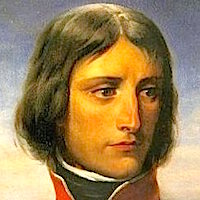
Napoleon Bonaparte
1769 – 1821 CE
Napoleon Bonaparte (1769 – 1821)
Called by historians everything from a megalomaniac worse than Hitler to an enlightened monarch responsible for creating some of the best political and legal systems in the modern world; Napoleon became a French general when only 24, a national hero at 26, and – attributing his success to meditation - one of the most successful commanders in all of history. Father of the European common market, his Napoleonic Code became a foundation for legal systems used today by 1/4 of the world's population, 70+ countries in Europe, the Americas and Africa. Inspired by the liberal vision of the French Revolution, he helped end feudalism, encouraged science and the arts, institutionalized equality before the law, property and religious rights, meritocracy, and our modern educational system. Excommunicated by the Catholic Church, he abolished the Spanish Inquisition and emancipated from ghettos Jews and Protestants in Catholic countries, Catholics and Jews in Protestant countries.
Lineages
French Politicians
Eras
Chinese
Qing dynasty (1644 – 1912 CE)Unlisted Sources
Maxims
Maxims (1804-15)
Maxims, 1804
Quotes by Napoleon Bonaparte (31 quotes)
“Strategy is the art of making use of time and space.”
Comments: Click to comment
“I may lose a battle but I shall never lose a minute.”
Comments: Click to comment
“As soon as the breach is made, the equilibrium is broken and the rest is nothing.”
Comments: Click to comment
“I meditate a great deal. If I seem equal to the occasion and ready to face it when it comes, it is because I have thought the matter over a long time before undertaking it.”
Comments: Click to comment
“I was never in truth my own master; I was always governed by circumstance.”
Comments: Click to comment
“when you bring bad news, rouse me instantly for then there is not a moment to lose!”
Comments: Click to comment
“Religion saves the rich from being massacred by the poor.”
Comments: Click to comment
“Marriage should be forbidden to individuals who have known each other less than 6 months.”
Comments: Click to comment
“Democracy is a game used by the strong to conceal their oligarchic rule.”
Comments: Click to comment
“Revolution is one of the greatest evils by which mankind can be visited.. all the advantages which it procures cannot make amends for the misery with which it embitters the lives of those who take part in it.”
Comments: Click to comment
“I am the greatest slave among men; my master is the nature of things.”
Comments: Click to comment
“communal interest is inherently sleepy and unproductive... a matter of public spirit which is rare.”
Comments: Click to comment
“finances founded upon a good system of agriculture never fail.”
Comments: Click to comment
“Never interrupt your enemy when he is making a mistake.”
Comments: Click to comment
“Music is the voice that tells us that the human race is greater than it knows.”
Comments: Click to comment
“That woman teaches people to think who never took to it before, or have forgotten how.”
Comments: Click to comment
“There is one kind of robber who the law does not strike and who steals what is most precious: time.”
from Maxims, 1804
Comments: Click to comment
“When people cease to complain, they cease to think.”
from Maxims
Comments: 1 comment
“Great ambition is the passion of a great character. Those endowed with it may perform very good or very bad acts. All depends on the principals which direct them.”
Comments: Click to comment
“The principles of war are the same as those of a siege. Fire must be concentrated on a single point and as soon as the breach is made, the equilibrium is broken and the rest is nothing.”
Comments: Click to comment
“Show me a family of readers, and I will show you the people who move the world.”
Comments: Click to comment
“Revolutions are like the most noxious dung heaps, which bring into life the noblest vegetables.”
Comments: Click to comment
“May my son study history for it is the only true philosophy and the only true psychology.”
Comments: Click to comment
“The hand that gives is among the hand that takes. Money has no fatherland, financiers are without patriotism and without decency, their sole object is gain.”
Comments: Click to comment
“History is the only true philosophy and the only true psychology.”
Comments: Click to comment
“The strong man is the one who is able to intercept at will the communication between the senses and the mind.”
from Maxims (1804-15)
Comments: Click to comment
Quotes about Napoleon Bonaparte (9 quotes)
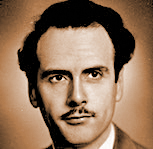
“Perhaps Napoleon felt a certain sympathy for the semi-literate, since he was semi-literate himself. He was unable to spell or write correctly in any language. His culture was totally unacceptable to the establishment.”
Comments: Click to comment
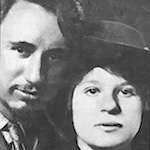
“Few great men have remained, after death, what they had been during their lives... Napoleon had served to embody his country's need for order after a riot of freedom... a dictator almost larger than history... he became after his death... mouthpiece of the recurrent cry for liberty... the most persuasive apostle of freedom.”
Comments: Click to comment
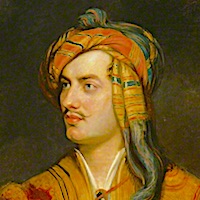
“Whose game was empires and whose stakes were thrones,
Whose table earth, whose dice were human bones.”
Comments: Click to comment
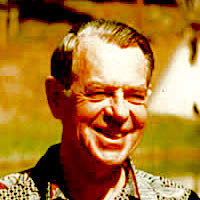
“Napoleon is the 19th century counterpart of Hitler in the 20th. Napoleon's ravaging of Europe was horrific.”
Comments: Click to comment
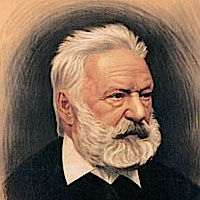
“Was it possible that Napoleon should win the battle of Waterloo? No! Why? Because of Wellington? No! Because of God! It was time that this vast man should fall. He had been impeached before the Infinite! He had vexed God! Waterloo was not a battle. It was the change of front of the Universe!”
Comments: Click to comment

“Napoleon made fun of the British, calling them a nation of shopkeepers. Yet these shopkeepers defeated Napoleon himself, and their empire was the largest the world has ever seen.”
Comments: Click to comment

“He remains the outstanding figure of his time, with something noble about him that survives despite his selfishness in power... He thought we should not see his like for 500 years. We hope not; and yet it is good—and enough—to behold and suffer, once in a millennium, the power and limits of the human mind.”
Comments: Click to comment

“Napoleon's dream of a continental system makes him father of the European Common Market... Where his armies went, right-hand driving has remained... He never got to England and they still drive on the left-hand side.”
Comments: Click to comment
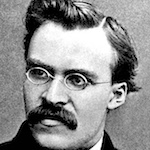
Comments (0)